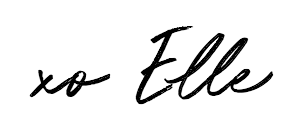
Most people wouldn’t peg me as someone who is was negligent about their finances. After all, I am an extremely reliable type A Virgo, but somewhere along the line I became financially irresponsible. Thinking about finances created so much anxiety that I chose to avoid it entirely for most of my adult life. But when I turned thirty last September I realized: it isn’t a cute look to be financially flippant and ironically, not thinking about finances is creating way more underlying stress and complications.
My friend Michelle on the other hand is a financial wizard! She is five years my junior, has a retirement plan, and is constantly assessing her financial health, which I find incredibly inspirational. We hung out in January, during which I spilled the beans (and a lot of snot and tears) about my messy finances, debts, and tax complications and while she was very supportive she gave me some tough love and basically said, “You need to get this shit sorted out, like now.”
And so, I did! I found a great CPA, I started using Quickbooks for my four businesses (yes: I have four businessess and thus four schedule Cs), I set aside my first $1000 for an emergency fund, I refinanced some debts, and I closed my ridiculously high APR PayPal Credit account.
But most importantly, I started to budget using a Japanese kakeibo that Michelle gifted me, which has been nothing short of LIFE CHANGING.

What is a kakeibo?
A kakeibo is a little budget tracker that is small enough to carry around and allows you to track all your expenses. At the beginning of the month it has you list your income, how much you need to spend on fixed bills, and then it has you look at the available money left and determine how much you’d like to save. (For me, “to save” means “transfer to debt,” as my first priority is to get rid of revolving credit and my car loan as soon as humanly possible.

Therefore, you jump into each week with a spending goal in mind and keep a record of all your expenses as they happen (and yes: I noticed a big psychological difference between using a budgeting app like Mint, versus manually writing out your expenses.)
It became this surprisingly fun game all month long, and here is what happened:
- I developed awareness
Even though I overshot my goal this month, which was expected as I set a very ambitious budget, I purchased things with a newfound sense of awareness. I also realized that some stores are particularly tempting for impulse buys and should be avoided (Target, I’m lookin at you). Developing awareness of your habits is the first step towards changing those habits.
2. I started to look for ways to make more money
I’m going to publicly admit this: I value a cushy work/life balance. In my ideal world, everyone would have three day weekends and work shorter days, learning to live with less stuff, but more time. (Time is after all, the most precious thing we have.) And while this belief hasn’t changed, I started to appreciate the fact that if I reach these financial goals faster, the time I do have will be less stressful. And so I started started to look for ways to generate more income, selling clothes on Poshmark, as well as scheduling a few extra students, and pitching brands.
3. I became more creative
I started to think of new ways to have fun with friends, figuring out meals to cook at home instead of eating out, and in general I started approaching life in a more innovative way, less reliant on stuff to get me by.
4. I caught financial mistakes
I never used to look at my bank account and so I wouldn’t catch if I was overcharged or billed inaccurately. Last month I caught a lot of things in my budget that surprised me! Apple charged me for a sneaky Scanner app that I discontinued, and I was promptly refunded. My family accidentally charged some apps and Amazon purchases to my card. And, a company charged me twice for a $90 piece of glass for my table flip last month.
5. I learned that while the little things add up, for me the big things blow my budget
Everyone talks about how small expenses add up, and of course they do. But mainly, my budget was blown by the $75+ expenses including three $150+ trips to Target, two $100 beauty treatments and a few $100+ clothing purchases. Indeed, I spent the most excess money on clothing this month, which is pretty ridiculous because I have a huge closet and get sent clothing from brands. With this in mind, next month I am putting a moratorium on all clothing purchases and am not stepping foot into a Target.
6. I learned that the more you confront your stressors, the less stressed you become
I definitely still feel anxiety and stress over certain financial realities, but a huge load of worry has been lifted because I’m dealing with it and feel more empowered to change my reality. Also, envisioning the feeling of being debt free and financially organized makes me feel incredibly light and excited, even though I’m not there (yet).
So tell me, have you ever used a kakeibo? What’s your budgeting tool of choice, if any?

